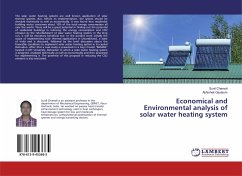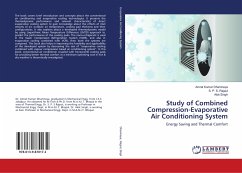The solar water heating systems are well known application of solar thermal systems. But, before its implementation, the system should be checked technically as well as economically. It was found that residential building sector consumes about 10% of the total energy consumption all over the world. There will be a great potential in finding out the potential of residential buildings in reducing the energy consumption and CO2 emission by the refurbishment of solar water heating system. In the long run, it will be monetary beneficial too. In the present work initially the scope of implementing solar thermal applications in Uttarakhand, a state of India and is discussed, followed by the brief discussion about the favorable conditions to implement solar water heating system in its capital Dehradun. After that a case study is presented in a boy's hostel "RAMAN" located in DIT University, Dehradun in which a solar water heating system is designed, analyzed technically as well as economically and then proposed for implementing it. The potential of this proposal in reducing the CO2 emission is also evaluated.
Bitte wählen Sie Ihr Anliegen aus.
Rechnungen
Retourenschein anfordern
Bestellstatus
Storno








